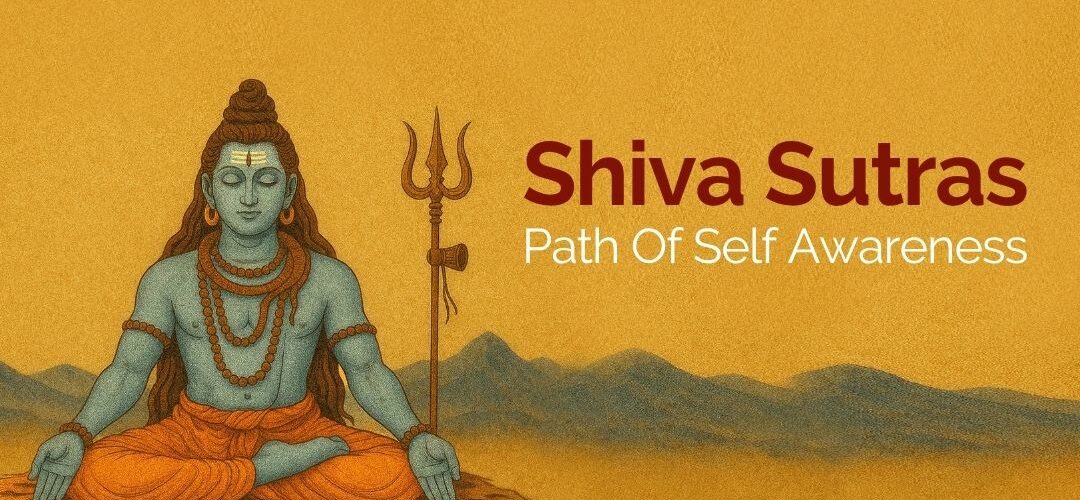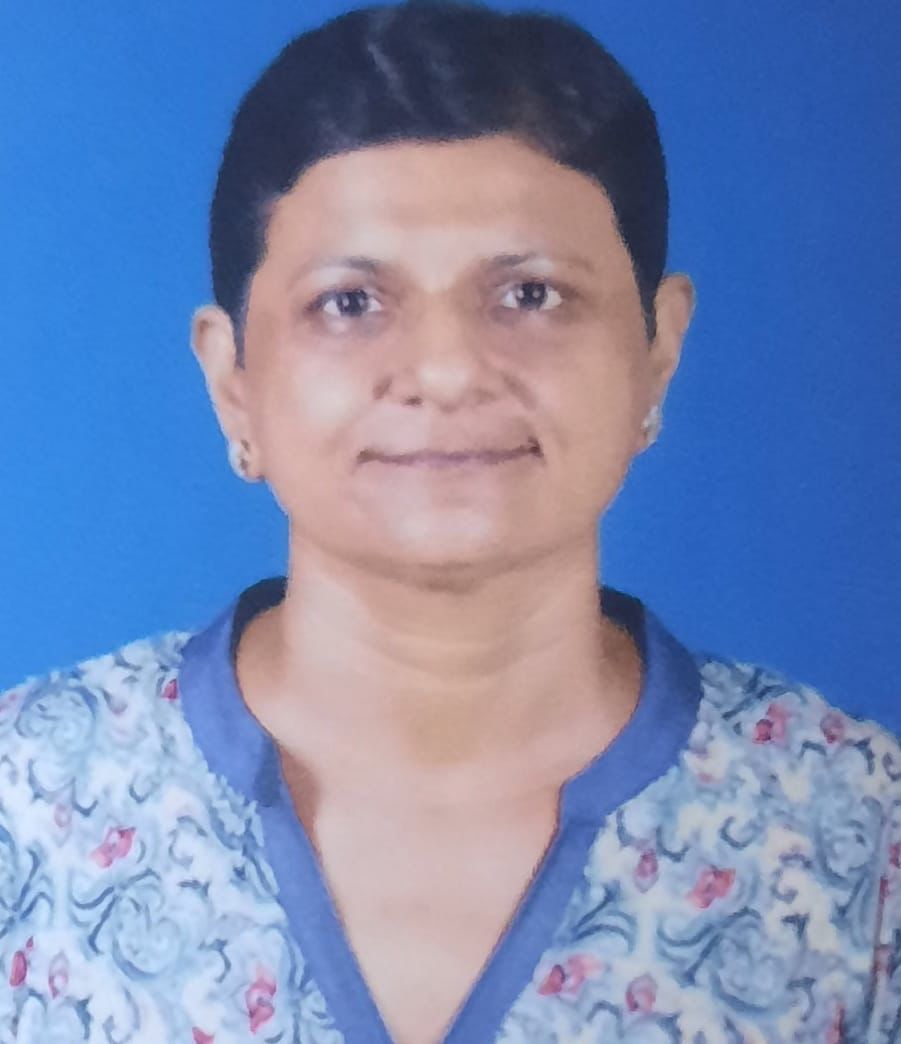
Shiva Sutras
Path of Self Awareness
The Shiva Sutras are a profound and timeless text of spiritual wisdom, central to the philosophy of Kashmir Shaivism. This collection of concise sutras (aphorisms) offers deep insights into the nature of consciousness, reality, and the path to spiritual liberation.
Faculty
19 August 2025 - 2 December 2025
7:00 PM-8:00 PM IST
Every Tuesday
Introduction
The Shiva Sutras are a timeless spiritual text traditionally attributed to Lord Shiva, revealed to the sage Vasugupta in 9th-century Kashmir. Distinct from the Maheshvara Sutras (which relate to Sanskrit grammar), the Shiva Sutras of Vasuguptaform the core philosophical text of Kashmir Shaivism.
These aphorisms offer direct insights into the nature of reality, asserting that ultimate reality (Shiva) is pure consciousness, and that the individual self (Atman) is identical with this supreme consciousness. The world, in this view, is a manifestation—a lila or divine play—of Shiva and Shakti, the dynamic union of masculine and feminine energies.
Course Objectives
The Shiva Sutras guide the seeker beyond ego and illusion, toward direct realization of the Self as divine. This course is designed to help you:
- Explore practical tools for inner transformation
- Engage in contemplative and meditative practices
- Recognize the divine in everyday life
Course Outcomes
Deepened Understanding of Consciousness and Reality:
- Recognition of Pure Consciousness (Chit/Caitanyam Ātmā): Students will gain a deep philosophical and, ideally, experiential understanding that their true Self is not the limited ego but pure, unconditioned consciousness, identical with the ultimate reality (Shiva).
- Understanding of Spanda (Divine Pulsation): Comprehension of the concept of Spanda as the dynamic, vibrating energy of consciousness that underlies all creation, leading to a perception of the world as a vibrant manifestation of the divine.
- Non-Dual Perspective (Advaita): Shifting from a dualistic worldview (self separate from God, spirit separate from matter) to a non-dualistic one, where all existence is seen as a unity, a play of divine consciousness.
- Nature of Maya and Illusion: Understanding how maya (the power of illusion) operates to create perceived limitations and distinctions, and how to transcend these illusions.
Spiritual Growth and Self-Realization:
- Path to Liberation (Moksha): Gaining insights into the various “upayas” (means or paths) outlined in the Sutras (Shambhavopaya, Shaktopaya, Anavopaya) for achieving spiritual liberation and self-realization.
- Inner Peace and Freedom from Suffering: Developing the capacity to identify the root of suffering in misidentification with the limited self and cultivating tools to alleviate mind-created suffering and everyday stress.
- Enhanced Awareness and Mindfulness: Cultivating a deeper sense of presence and awareness in daily life, recognizing the divine in all experiences.
- Cultivation of Spiritual Qualities: Fostering qualities like intention (Ichcha Shakti), knowledge (Vidya Shakti), and action (Kriya Shakti) to facilitate inner transformation.
- Integration of Spirituality into Daily Life: Learning practical applications of the Sutras’ wisdom for meditation, contemplation, self-inquiry, and even mantra chanting, enabling a more conscious and fulfilling life.
Philosophical and Yogic Foundation:
- Grasping Kashmir Shaivism Principles: A solid understanding of the foundational principles of Kashmir Shaivism and its distinct approach compared to other philosophical schools (e.g., Advaita Vedanta).
- Contextualizing Yogic Practices: Understanding the philosophical underpinnings of various yogic and Tantric practices within the framework of the Shiva Sutras.
- Appreciation of Sanskrit Terminology: Familiarity with key Sanskrit terms and concepts crucial to Kashmir Shaivism.
This course aims to equip students with a profound theoretical understanding and practical tools to embark on a journey of self-discovery, leading to a direct experience of their inherent divinity and a liberated way of being.
Course Syllabus
Chapter 1 of the Shiva Sutras is considered the most fundamental and profound, laying the groundwork for the entire philosophy of Kashmir Shaivism. It focuses on the nature of ultimate reality as pure consciousness and introduces the path of Shambhavopaya, the direct and highest means to spiritual realization.
Central Theme: Consciousness as the Self (Chaitanyam Atma)
The very first sutra, and arguably the most important, sets the tone:
- Chaitanyam Atma (Consciousness is the Self) This aphorism declares that the individual self (Atman) is not separate from, but is identical with, the ultimate, all-pervading, and independent Consciousness (Chaitanya), which is Shiva. It’s a radical non-dual statement that directly challenges dualistic notions of a separate God and a limited individual. It implies that true liberation is not about acquiring something new, but recognizing what one already is.
Key Concepts Introduced in Chapter 1:
- The Nature of Consciousness (Chaitanya/Citi):
- Chapter 1 elaborates on Chaitanya not just as passive awareness, but as dynamic, independent, and possessing infinite power (Svātantrya). This consciousness is the source of all knowledge (Jnana Shakti) and action (Kriya Shakti).
- It’s emphasized that this consciousness is present everywhere, in all beings and phenomena, whether conscious or unconscious.
- Ignorance as Bondage (Jnanam Bandhah/Ajñanam Bandhah):
- 1.2: Jnanam Bandhah (Knowledge is Bondage) (often interpreted as Ajñanam Bandhah, meaning ignorance is bondage). This sutra, depending on the interpretation, highlights how limited or dualistic knowledge (which separates the subject from the object, and the individual from the divine) creates bondage. True liberation comes from transcending this limited perception. Ignorance here refers to the non-awareness of one’s non-difference from the Divine.
- The Play of Divine Energies (Shakti):
- The Sutras begin to introduce how this pure consciousness manifests the world through its own inherent power, or Shakti. The universe is not separate from Shiva, but an expansion of His own being.
- 1.3: Yonivargah Kalasariram (The group of sources is the body of powers) This suggests that the categories of manifestation (the tattvas, or principles of reality) are the body of Shiva’s creative powers. They can lead to bondage if one identifies with them as separate, or to liberation if recognized as aspects of the divine.
- The State of the Awakened Being (Shambhavopaya):
- Chapter 1 is largely associated with Shambhavopaya, the highest and most direct path to liberation. This path is characterized by a sudden, direct recognition of one’s true nature, often through grace or a profound shift in perspective, rather than through gradual practices. It emphasizes the mind’s ability to transcend thought and directly merge with pure consciousness.
- The later sutras in this chapter delve into the qualities and experiences of a yogi who has realized this state, emphasizing pure awareness, transcendence of mental constructs, and the dissolution of duality.
In essence, Chapter 1 of the Shiva Sutras is a radical call to recognize the divine within. It asserts that the ultimate reality is not external but is one’s own pure, unconditioned consciousness, and that the entire universe is a vibrant manifestation of this very consciousness. It sets the stage for the subsequent chapters, which explore other means (upayas) to achieve this profound realization.
Reading List
Primary Texts (with notable translations/commentaries):
- Śiva Sūtras:
- Singh, Jaideva (Trans. & Comm.). (1979). Śiva Sūtras: The Yoga of Supreme Identity. Motilal Banarsidass.
- Lakshmanjoo, Swami (Trans. & Comm.). (2002). Shiva Sutras: The Supreme Awakening. Universal Shaiva Fellowship.
- Dyczkowski, Mark S.G. (Trans. & Comm.). (1992). The Aphorisms of Śiva: The Śiva Sūtra with Bhāskara’s Commentary, the Vārttika. State University of New York Press.
- Spanda Kārikās:
- Singh, Jaideva (Trans. & Comm.). (1980). Spanda-Karikas: The Divine Creative Pulsation. Motilal Banarsidass.
- Lakshmanjoo, Swami (Trans. & Comm.). (2005). Spanda Kārikās: The Divine Creative Pulsation. Universal Shaiva Fellowship.
- Vijñāna Bhairava Tantra:
- Singh, Jaideva (Trans. & Comm.). (1979). Vijñāna Bhairava Tantra: The Yoga of Inner Experience. Motilal Banarsidass.
- Lakshmanjoo, Swami (Trans. & Comm.). (2007). Vijnana Bhairava: The Practice of Centring Awareness. Universal Shaiva Fellowship.
- Pratyabhijñāhṛdayam:
- Singh, Jaideva (Trans. & Comm.). (1980). Pratyabhijñāhṛdayam: The Secret of Self-Recognition. Motilal Banarsidass.
- Tantrāloka (Excerpts/Studies):
- Abhinavagupta. Tantrāloka (Several volumes, various translators, often studied in academic contexts. Full English translation is an ongoing scholarly endeavor). Note: Due to its immense size and complexity, often referenced via scholarly articles or specific chapter translations.
- Śiva Sūtras:
Secondary Sources / Introductory Works:
- Lakshmanjoo, Swami. (2000). Kashmir Shaivism: The Secret Supreme. Universal Shaiva Fellowship. (Based on his lectures)
- Dyczkowski, Mark S.G. (1987). The Doctrine of Vibration: An Analysis of the Doctrines of Spanda and Pratyabhijñā in Kashmir Shaivism. State University of New York Press. (More academic/scholarly)
- Shankarananda, Swami. (2007). Consciousness is Everything: The Yoga of Kashmir Shaivism. Shanti Mandir.
- Wallis, Christopher D. (2013). Recognition Sutras: Illuminating a 1,000-Year-Old Spiritual Masterpiece. Mattamayura Press. (While not solely on Shiva Sutras, it offers a contemporary understanding of Kashmir Shaivism’s core philosophy).
Course Features
- Live Interactive Sessions: Engage in live lectures with opportunities for Q&A.
- Flexible Learning: Access recorded sessions and course materials at your convenience.
- Certificate of Completion: Earn a certificate upon successfully completing the course.
Unique Pedagogy : Two Day Immersion
This course goes beyond intellectual understanding. Upon completing the online modules, participants will be invited to a two-day in-person immersive experience (dates to be announced during the course), held in a traditional Gurukulam or Ashram setting. During this retreat, you will:
- Follow a sāttvika lifestyle, aligned with yogic and spiritual principles
- Engage directly with faculty and, where possible, guest speaker(s)
- Deepen your embodiment of the teachings through shared practice and reflection
Accommodation and meals will be provided at no cost. Participants are kindly requested to arrange their own travel.

